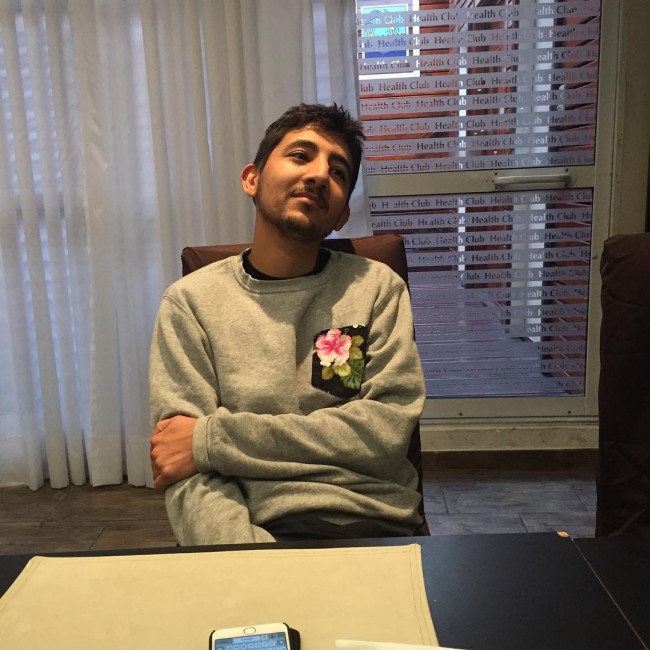Each year, VDS invites returning students to offer words of advice to the incoming class. We hope these stories and lived wisdom will help you navigate your own path at Vanderbilt!
by Luis Vargas, MDiv2
The best education in film is to make one. I would advise any neophyte director to try to make a film by himself. A three-minute short will teach him a lot. I know that all the things I did at the beginning were, in microcosm, the things I’m doing now as a director and producer. There are a lot of noncreative aspects to filmmaking which have to be overcome, and you will experience them all when you make even the simplest film: business, organization, taxes, etc., etc. It is rare to be able to have an uncluttered, artistic environment when you make a film, and being able to accept this is essential.[1] – Stanley Kubrick
 It goes without saying, you will be writing many papers at Vanderbilt Divinity School. As such, I would like to offer this year’s incoming class my perspective on theological education as art. For example, when I write papers, I think of them as artwork.
It goes without saying, you will be writing many papers at Vanderbilt Divinity School. As such, I would like to offer this year’s incoming class my perspective on theological education as art. For example, when I write papers, I think of them as artwork.
One artist who has greatly influenced my writing and theological education is Stanley Kubrick, one of the most brilliant filmmakers of the twentieth century. He made a film in almost every genre, often defying and breaking the categories and limits of genres in films such as 2001: A Space Odyssey (1968) and The Shining (1980), yet he was an ordinary person whose creativity was funneled and brightened through ordinary means. He worked with a borderline neurotic passion to pay attention to every detail of the craft of film, from finding the right story to capture his imagination for his next project, to creating an outline and budget for the film, to networking with the right people to finance his films, to making sure his films were released in a theatre that would ensure a quality showing of his films. Every detail and aspect mattered to Kubrick, and it was his passion to understand, rather than pin down pat answers, that fueled the creativity behind his films.
A common stereotype of the artist is a rogue who has been naturally endowed with such brilliance that one does not need the things that less intelligent (read inferior) humans need, such as outlines or budgets. George Orwell wrote, “To see what is in front of one’s nose needs a constant struggle.”[1] In a world of catchy and urgent headlines, it is tempting not to read the fine print, to take shortcuts, or search for quick fixes, rather than seek for what is eternal, what is true, and what is divine. That requires time and work. It requires getting one’s hands dirty. And if you care and are ambitious enough, it requires thinking about budgets, taxes, and outlines.
It also requires being involved in relationships with people that are different from you—people that you, perhaps, do not like and with whom you would prefer not being associated. This is because no single individual or group has a monopoly on truth, the eternal, or the divine. The myth of independence is one of the greatest delusions of our time. As humans, we are dependent. In Orwell’s terms, it is obvious and requires no argument to prove it. We just are.
While there are many people currently missing from our community (for example, Jews, Buddhists, or Muslims), I have found myself continually challenged by my relationships here at VDS. I want to ask you to have the humility and curiosity to ask questions, make mistakes, and engage in debates inside and outside of the classroom. We are better together. During my time at VDS, the world has become simultaneously bigger and smaller as I realize how different and similar I am to my classmates and professors, and ultimately how questions about how different or similar “I” am from others can distract us from the more important work of being people of justice in a broken world.
The difference between a quick fix and the eternal is similar to the difference between a classic song like Simon and Garfunkel’s “The Sound of Silence” and Justin Bieber’s pop song “Baby.” As a final challenge, I would ask this year’s incoming class, what kind of intellectual, pastoral, and social justice work do you desire to create? Do you want to produce candy or gold? The choice is yours, and as Stanley Kubrick proved, every choice matters.
[1] Joseph Gelmis, “Stanley Kubrick,” in The Film Director as Superstar (Garden City, NY: Doubleday, 1970), 316.
[1] George Orwell, The Collected Essays, Journalism and Letters. In Front of Your Nose, ed. Sonia Orwell and Ian Angus (Ne: Harcourt, Brace, and World, 1968), 125.
Works Cited
Gelmis, Joseph. “Stanley Kubrick.” In The Film Director as Superstar, 293-316. Garden City, NY: Doubleday, 1970.
Orwell, George. The Collected Essays, Journalism and Letters. In Front of Your Nose. Edited by Sonia Orwell and Ian Angus. Ne: Harcourt, Brace, and World, 1968.